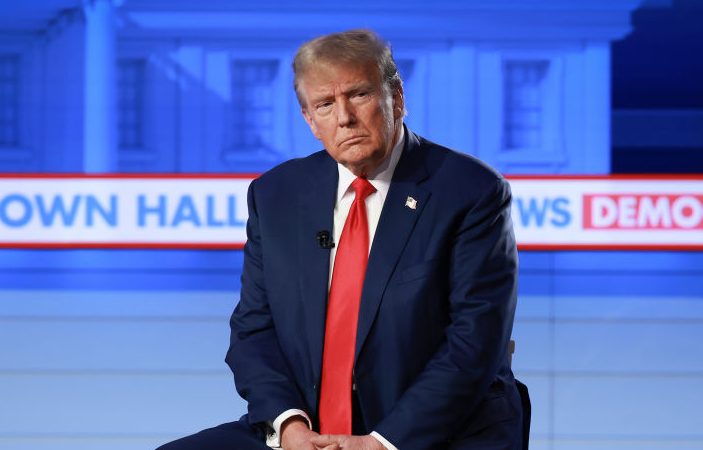In an effort to “keep our citizens safe and our country secure”, Britain’s Conservative government has announced a new definition of extremism. Does the European Union have much to learn from what the UK is heralding as a new approach to countering the Islamist threat?
It comes as the growing threat of extremism, in particular Islamism, has come to dominate British politics since October 7 and the start of the Israel-Gaza conflict. In just the past month, an MP has announced he is not seeking reelection due to threats and the Speaker of the House of Commons has upended parliamentary procedure due to concerns for MPs’ safety. Now the Home Office is upping MPs’ security budget.
According to the new government definition, “extremism” consists of the “promotion or advancement of an ideology based on violence, hatred or intolerance, that aims to: (1) negate or destroy the fundamental rights and freedoms of others; or (2) undermine, overturn or replace the UK’s system of liberal parliamentary democracy and democratic rights; or (3) intentionally create a permissive environment for others to achieve the results in (1) or (2).”
The move has already come in for much criticism on free-speech grounds. Like similar government initiatives targeting “hate”, “extremism”, or “disinformation” across the world, this definition is so expansive that it may easily impinge on freedom of expression.
How any such definition is interpreted will reflect the prejudices of the average government official.
As the Free Speech Union notes, this could open the door to “groups expressing lawful but dissenting, sceptical, unfashionable, or ideologically inconvenient views” being labelled as extremist according to the whim of the government.
This may prove a particularly grim prospect for dissenting conservative voices given that the Labour Party will likely soon be in power.
Yet this announcement points to another issue aside from potential civil-liberties concerns, one that has so far been largely overlooked.
Last Thursday’s announcement did not actually change the law, nor was it directed at organisations or individuals.
Rather, it changed the government’s own “community engagement principles”, rules for how it engages non-government “stakeholder” groups in society.
The new guidance, the government explains, “will ensure the government does not meet, fund or provide a platform to extremist groups or individuals. It will also apply to the honours system and due diligence for public appointments.”
It’s worth thinking for a second about what this means. With this new guidance, the government is reminding itself not to give out money and influence to groups and individuals it considers “extremists”.
Is there not a pretty shocking implication here? Surely the fact that such guidance has had to be issued at all is a damning admission of what’s been happening on the government’s watch.
Consider the five groups the government has singled out as likely not to be engaged with. Three it said had “Islamist orientation and beliefs” – MEND (Muslim Engagement and Development), Cage, and the Muslim Association of Britain (MAB). Two it described as promoting neo-Nazi ideology: the British National Socialist Movement and Patriotic Alternative.
The inclusion of the latter two groups in this list may strike some as a little strange. After all, does anyone seriously think that Patriotic Alternative, one of whose members was recently imprisoned for two years for putting up stickers, was exercising an undue influence on government policy?
But in order to walk the tightrope of political correctness, whenever the government talks about Islamist extremism it must also throw in a ritual denunciation of extremism on the Right.
As for the groups labelled as Islamist, however, evidence suggests they’ve had an easy path to the centre of British public life.
A 2017 report by the Henry Jackson Society, a national security think tank, found that MEND had received £25,000 from the London Borough of Tower Hamlets. It was given the money as part of the government’s Prevent counter-radicalisation programme, despite the fact that, according to the report, MEND had legitimised the killing of British troops abroad and promoted conspiracy theories about Jews.
Another group whom the government, it is speculated, had been hoping to brand as potentially extremist, the Muslim Council of Britain, received £326,000 in government funding last year.
Such groups haven’t just been handed money by the British state but also asked to offer their views on matters of British law.
Both MEND and Cage, for instance, were invited by the parliamentary committee on British Muslims to submit evidence to a 2017 report on ‘Islamophobia’. This committee came up with a definition that equates criticism of Islam with racism, which critics say amounts to a blasphemy law. It is now backed by the Labour Party.
The outraged response of these groups has been to complain that that the government seeking to distance itself from them is undermining civil liberties.
But that’s really not what’s happened here. None of these groups has been proscribed – indeed, MAB still has a tax-exempt trust with charitable status linked to it. All that’s happening is they’re no longer being expressly invited into the halls of power.
It should be counted as a good thing that the government is starting to get a grip on who it gives out public money to.
Indeed, it speaks volumes that this policy has been billed as an ‘extremism crackdown’. The fact that not giving out money and knighthoods to Islamists is seen as a crackdown just shows how favourably these groups have been treated by the British state so far.
The UK is far from unique in Europe in dishing out public money to groups that are antagonistic to our common values. Ending this habit is long overdue – but the new definitions of extremism do not come without risks, especially for conservatives.





The EU’s hate-speech bill is not simply about being tough on prejudice. But it is a crackdown on dissent and a restriction on democracy